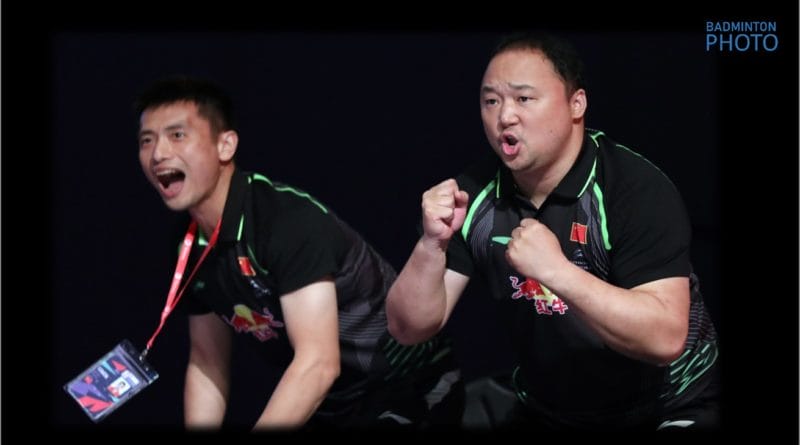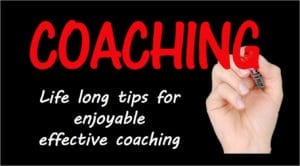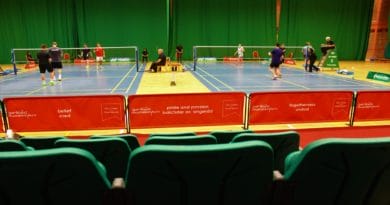The Player to Coach transition – challenges and pitfalls: part 3
Having good playing skills will benefit you as a coach, especially if you play against your players
However, can you play as a coach rather than a player, there is a difference
There are very few courses that will teach you this, but other experienced coaches could help
– – – – – – – – – – – – – – – – – – – – – – – – – – –
This is the last part looking at the challenges, that some people experience when they transition from playing into coaching
What challenges have you experienced and are you willing to share your experiences?
Have you read Parts 1 and 2

I hope that you felt challenged especially if you have recently moved from player to coach. How did you react, did you read to the end of the post?
I’ve had some feedback from friends who read the draft versions. It made me stop and think if I was ever going to publish these posts.
They said that it was unlikely that people would read to the end of the posts as there were too many words.
They also suggested that my target audience don’t ever seek to educate themselves in these topics in the first few years after they finish playing.
I hope this isn’t true. I do try and reduce the word count in the posts, but surely people can spend 10 or 15 mins reading about the potential pitfalls and challenges ahead.
If you’d like to contact me and explain if you believe or don’t believe this, I’d love to hear from you. Send me an email at contact@badmintonandy.com and we can start chatting.
– – – – – – – – – – – – – – – – – – – – – – – – – – –
My goal is to help you preapre for the challenges
How you hear this advice is up to you
I can’t control how you think or react, you may feel challenged and stop reading!
– – – – – – – – – – – – – – – – – –
The challenges and pitfalls
Part 1
1. Expectations that are either misguided or misunderstood
2. Unconsciously biased towards your views (as a player)
Part 2
3. “When I was a player”
4. Dealing with challenges and challenging people
5. Taking silence as agreement
6. Your journey and the challenges of coach education
7. CPD, is it worth your time?
8. People asking for your advice or wanting you as a mentor
9. Not valuing discussion and actively avoiding it!
10. Struggling to know what you stand for
– – – – – – – – – – – – – – – –
7) CPD, is it worth your time?
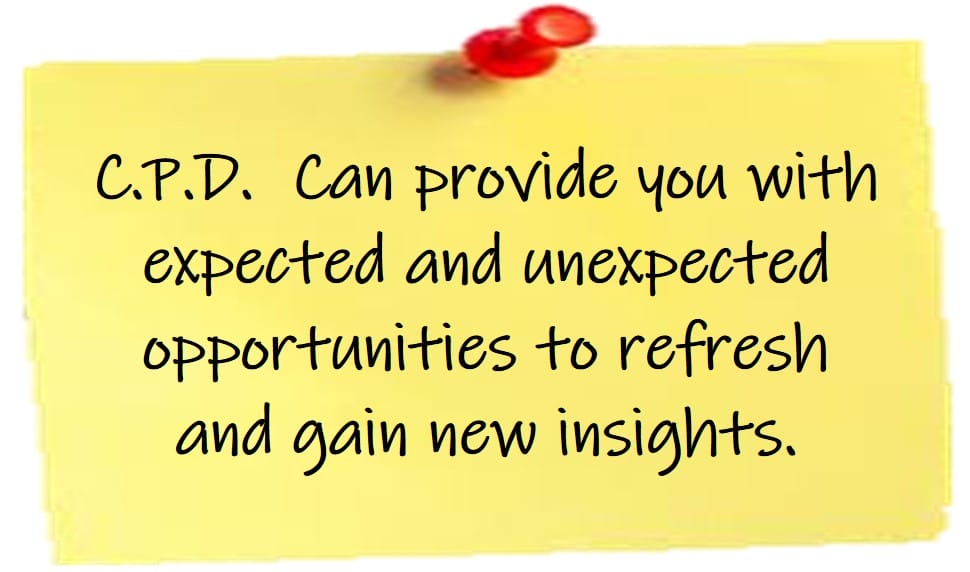 Yes, Continued Professional Development is worth your time and you will be expected to attend more training if you work for an organisation. They may lay out a programme for your ex-player to coach development.
Yes, Continued Professional Development is worth your time and you will be expected to attend more training if you work for an organisation. They may lay out a programme for your ex-player to coach development.
Did you think that a BWFL2 or UKCCL2 would be the end of your training? 🙂
Expect most CPD to challenge you in some way. It will certainly take up your time from the court and at home. This should happen at least 2-3 times a year, if it isn’t then question your employer or yourself.
If you work for yourself as a professional coach you may decide that you haven’t the time or the inclination to continue your training/development. This would be a mistake. Time spent training will help in maybe more ways than you think. Taking a course that relates to small business management will certainly help you complete your tax returns at the end of the year!
Your biggest problem may be that your National Governing body or your club does not provide the systems to help or support you financially. I’ve seen this cause frustration to many coaches and also cause (unseen) problems with their coaching. The effectiveness of their work diminishes over time as they become stale, void of new ideas and insights.
How often would you expect to take a course or attend a CPD session?
CPD: what to do
- If you can, choose your courses and topics carefully. Make sure you have a good wide base, but also look to specialise.
- Try to take courses that have progression, various levels of qualifications. A quick course isn’t always worth the effort in the longer term.
- Finish the course! You may be surprised how many people don’t complete the work, especially coursework.
- Occasionally choose a course that helps with skills off the court: small business accounts, Microsoft Office packages (you may need to become better at PowerPoint for future interviews !)
- Create new contacts and form mini working groups with new people as often as you can.
CPD may challenge you but it will certainly keep you intellectually active
– – – – – – – – – – – – – – – –
8) People asking for your advice or wanting you as a mentor
 People will ask you for advice, especially if in their opinion, you have been a good player. New coaches will expect you to know the answers to all their questions.
People will ask you for advice, especially if in their opinion, you have been a good player. New coaches will expect you to know the answers to all their questions.
You may not think you are a mentor but people will show you ‘respect’ and want to hear what you have to say.
Is this really a problem?
The temptation could be high to help and offer advice, however, be careful of what you advise. The context of your advice is very important. The advice you give will be based on what?
Unless you ask questions then your advice will often only be general and limited in use. Be careful, your advice could be taken out of context and not always work. You may even feel pressured into not saying “I’m sorry, I don’t know what to advise you”.
These typical questions may sound specific but often it’s difficult to advise as they are BIG topics, often with no quick fixes.
- How can I improve my backhand?
- Tell me how I can make the shuttle spin like you
- When should I split and how can I train my split-step?
- What is the secret to a quick grip change?
How easily will you give advice?
How easily will you be able to say “I’m not sure what to advise you”.
Do you believe you can deliver robust coaching advice at this stage of your coaching career?
Mentoring: what to do
- Be careful of what you say. Know the limits of your knowledge and be prepared to recommend another person for them to talk to.
- Don’t make up answers and guess, if you don’t know just say so.
- Do help where you can, but do place limits on the interactions.
- Be ready for the mental and time challenges mentoring can bring. People may try to drain you of your knowledge.
- Aim to help as many people as you can, but start slowly and as your coaching knowledge increases, help more people.
– – – – – – – – – – – – – – – –
9) Not valuing discussion and actively avoiding it!
How often have you sat down with at least 2 other coaches and had a discussion, an open in-depth discussion about coaching?
Or would you prefer not to talk about coaching as it’s obvious what to do, and why would anyone question what you do – you already know what to do!
How do you respond if you are asked a question that makes you feel uncomfortable?
Hopefully, you know at least 1 person (hopefully 3) that you are willing to engage with. People with a subtle difference of opinion or viewpoint, not just a mate. I’ve found that there is much to be gained from meeting with other coaches and talking openly about topics. It’s a great opportunity to hear something new, find a different viewpoint, or be informed that someone else has faced the same challenges.
Of course, there are those embarrassing moments when someone disagrees with the viewpoint you have. If it’s the first time another coach has asked you to back up your beliefs, that moment can feel very strange and uncomfortable.
How important is it for you to develop ‘challenging’ relationships?
If it is, do you actually participate and seek out people to talk with?
Do you like having coach to coach discussions?
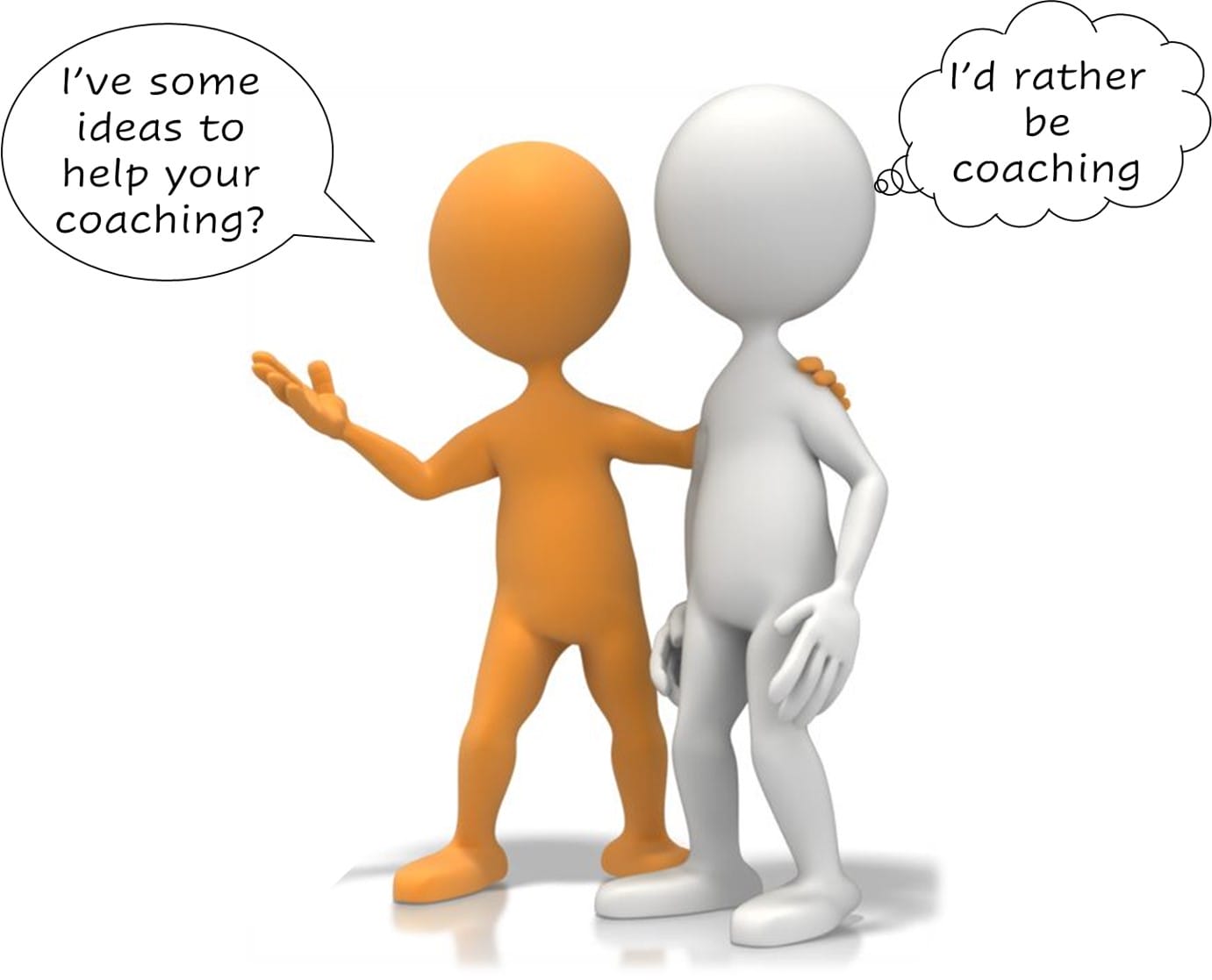 Or, do you find it difficult to realise the value?
Or, do you find it difficult to realise the value?
You may decide that talking about coaching with other coaches can be difficult. It’s likely you will not agree on everything or understand some of the things they are proposing, or they will disagree with you and tell you so! How would that make you feel?
I wonder if you will find it hard to generate enthusiasm to talk about coaching! Especially if people disagree or just keeping questioning you during the discussion.
You tell people that it’s a simple game and that you’d rather be on the court than talking about it. After all, you did similar practices, they worked and if your players are dedicated to practice then they all will improve.
If your opinion is that there aren’t many coaching ‘secrets’ to learn and ‘at the end of the day’ it’s just about hitting shuttles and knowing how to win points. That’s exactly what you did on court and it’s only ‘experience’ that your players need.
So you decide to stop allowing people to talk ‘coaching’ with you, decide to stay on the court and feed your players, knowing that you are giving your best.
Are there are times when you deliberately do not talk ‘coaching’ with other people. Instead, you talk positively about the future plans you have for your players. You become (maybe without knowing it) skilful at avoiding difficult conversations and difficult people who would rather critique the work that you do and the ideas you have.
Maybe you believe that some people ‘overcomplicate’ coaching
But is this true?
Have you considered asking another coach for help with ideas and methods that could improve your players? There are many coaching methods and theories (often underpinned by scientific research) that could help you. But, who would you ask, and would they talk to you?
Ask yourself if there have been ideas that you’ve thought of and tried that worked. If there have been, then could it be possible that others will have ideas to help you based on their experiences?
Are you motivated at the idea of chatting about the art of coaching… Yes or No?
Coach to Coach discussions: what to do
- Challenge yourself as you did as a player, although this time instead of facing opponents it’s about finding people to help/challenge you to become a better coach.
- Be brave and embrace that there is always something to learn.
- Seek out a variety of people who are willing to help. Be aware that your friends may not want to question you.
- Create a ’roundtable’ discussion group. A minimum of 3 people who are prepared to share, challenge and advise.
- Add to your knowledge rather than depend on what you know.
– – – – – – – – – – – – – – – –
10) Struggling to know what you stand for and coping with the expectations of others
When you were a player did you know what your aim was, your goal, your target?
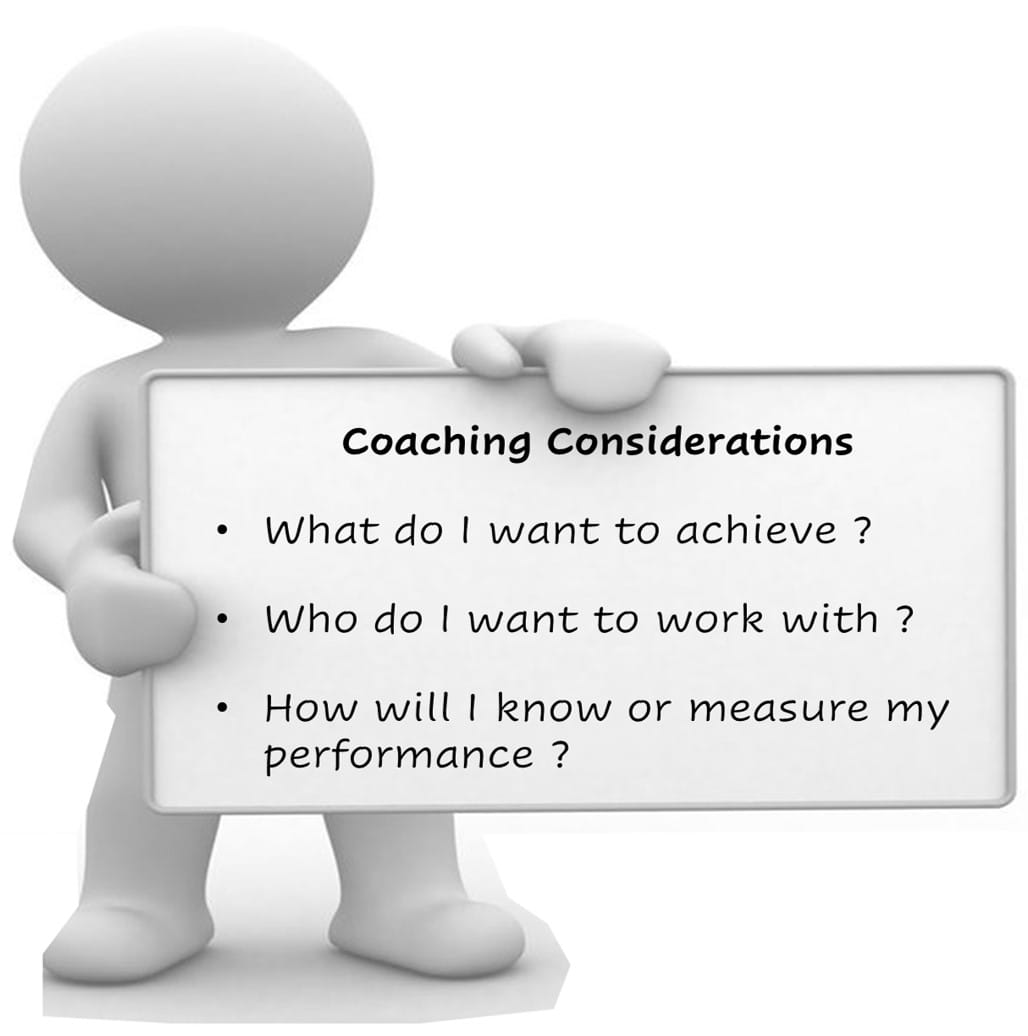 You may have had several and these probably changed over time as circumstances altered. However, I presume that generally, you knew what you wanted to achieve. Plus you may have had several ways to measure your success.
You may have had several and these probably changed over time as circumstances altered. However, I presume that generally, you knew what you wanted to achieve. Plus you may have had several ways to measure your success.
Will the same will apply to your coaching?
I believe that there is a big difference between being a player or a coach in terms of how you measure your progress and the different types of successes available to coaches. Have you given any thoughts on how a coach can measure their success or failures, their effectiveness? 🙂
As a player you started as a novice, playing novice events. You may have had high goals/targets but you knew that over time you would improve and play better and against better opponents. There was always an obvious challenge ahead, a path to follow.
As a coach what are your measures? I’d really like to know.
Maybe you would be willing to write a post explaining how you assess if your work as a coach is effective and successful (in your terms) now that you no longer have that immediate measure that came from playing tournaments. What measure would you give someone moving from player to coach?
How do you measure your effectiveness as a coach? Do you have a method?
Who do I want to work with or for?
This question needs your consideration.
Do you want to work for an organisation (full or part-time) or do you want to try and go it alone? Do you want to work with the elite (Senior or Junior Elite) or do you feel that participation coaching of enthusiastic social players is more to your liking? Whatever you choose you must aim to bring value and satisfaction/enjoyment to yourself.
Which form of coaching will bring you the most satisfaction … have you considered that?
When you start coaching people ‘expect’
When you start coaching it is feasible that you could start at an elite level, going straight from playing to coaching, possibly with none or very limited coaching experience or qualifications. You will be expected to succeed from day one, to deliver an experience equal to winning high-level tournaments.
Expectations still happen if you start at a lower level. You are the ‘Coach’ so people expect to improve and learn something new. Possibly people will expect more as you change roles from player to coach and give you less time to gain expereince.
Do you find the expectations from others (players & coaches) challenging? In a way, it’s similar to learning to play and suddenly finding yourself in the final where people expect you to deliver. I hope in some way all the advice in this post and Part 1 and 2 will help you deal with this situation.
– – – – – – – – – – – – – – – –
Further reading
A friend once said that these tips were just like having a conversation with a friend.
All the suggestions here have come from talking with my friends who made the change from Player to Coach. Click on the image to read more.
I’m thankful for all their advice and tips as many are about failures that happened to them. Often they managed to overcome each but sometimes it took years, a change of circumstances, or an explosive moment with players, coaches or organisations.
The struggles and surprises that happened to them could happen to you!
– – – – – – – – – – – – – – – –
As always, I’m very grateful if you have read this far
I hope you enjoy the suggestions. Is there anything that you’ve read that has helped or that you disagree with?
I need your help to help others during the player to coach transition
Why don’t you send me an email, I’d love to hear your views contact@badmintonandy.com

